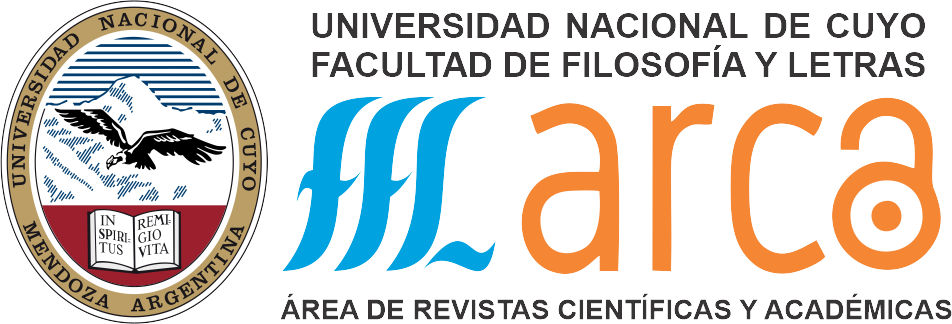El rol de las ASC como alternativa participativa a las ONGs en el Cono Sur
DOI:
https://doi.org/10.48162/rev.48.048Abstract
The aim of this paper is to analyze the elements of public discourse on the so-called Third Sector, as well as on civil society associations, revealing the different dynamics and associated processes underlying them. This review emerges from the Social Sciences and addresses language as a communicative event within a social context where human interactions are located (Urra, 2013).The relationships between texts and reality are explored, making discourses, their points of origin and how they flow according to the different socio-political conjunctures visible. We can distinguish two types of discourse in relation to this topic: the first associated with the dynamics of political development and the consequent search for forms of democratic governance, and the other, associated with the dynamics of economic and social development, the search for forms of development. socially inclusive, equitable, participatory and empowering alternatives for the most vulnerable social groups. In the case of this work, the sources analyzed are the United Nations Reports and the World Bank. Regarding the methodology followed, we will first review the origin and different current uses of the concept of civil society and civil society associations (ASC). In a second moment, we carry out a review of the role of the different ASCs in the Latin American development process. The focus is on ASCs and social movements, considered repositories of the forces of opposition and resistance against the system of global capitalism in its dominant neoliberal form.
References
BAKER, D. y ROSNICK, D. (2003). Too Sunny in Latin America? The IMF´s Overly Optimistic Growth Projections and Their Consequences. Washington, D.C., CEPR.
BAKER, D. y WEISBROT, M. (2002). The Role of Social Security Privatization in Argentina´s Economic Crisis. Washington, D.C, CEPR.
BARNETT, M. (2011). Humanitarianism Transformed. Perspetives on Politics, Vol 3 (4), 723-740.
BARNETT, M. y FINNEMORE, M. (2004). Rules for the world: International organizations in global politics. Ithaca. Cornell University Press.
CALCAGNO, A. E. (2015). La situación económica de la Argentina. Economía UNAM, 12(36), 16-33. https://doi.org/10.1016/j.eunam.2015.10.002
(1990). Foundations of Social Theory. Cambridge: Harvard University Press.
DALLANEGRA PEDRAZ, L. (2008). Tendencias políticas en América Latina en el contexto mundial del siglo XXI: Hacia una teoría política realista-sistémica-estructural sobre América Latina. Espiral (Guadalajara), 15(43), 79-121.
EDWARDS, M., HUME, D., WALLACE, T. (1999). NGOs in a Global Future: Marrying Local Delivery to Worldwide Leverage. Conferencia presentada en NGOs in a Global Future: The Third International NGO Conference. Birmingham, Reino Unido. https://doi.org/10.1002/(SICI)1099-162X(199905)19:2<117::AID-PAD70>3.0.CO;2-S
FIGUEROA BURDILES, N. (2013). El desarrollo y las políticas públicas. Revista Polis, 33:1-14. https://doi.org/10.4067/S0718-65682012000300018
FONSECA, V. (2008). Altermundismo: ¿sociedad civil global o nuevo movimiento antisistémico? NORTEAMÉRICA. Año 3, (2), 159-194.
FORNI, P. (2002). Las redes inter organizacionales y sus implicancias en el desarrollo de las organizaciones comunitarias de los pobres y excluidos. Primer congreso Nacional de Políticas Sociales. Quilmes, 1 de abril. Disponible en: http://www.documentacion.edex.es/docs/1303FORred.pdf
FORNI, P.y LEITE, L. (2006). El desarrollo y legitimación de las organizaciones del tercer sector en la Argentina. Hacia la definición de un isomorfismo periférico. Sociologias, Porto Alegre, ano 8 (16), 216-249.
HARRISS, J. y de RENZIO, P. (1997). Policy arena: Missing link or analitically missing? The concept of social capital. Journal of international development vol. 9(7),919-937. https://doi.org/10.1002/(SICI)1099-1328(199711)9:7<919::AID-JID496>3.0.CO;2-9
LAZO CIVIDANES, J. (2004). Ideología y anti-globalización: Una aproximación al discurso de la vía campesina. Revista de ciencia política (Santiago), 24(1), 169-188.
LEITE, S. (2003). Avaliação e democracia: possibilidades contra-hegemônicas ao redesenho capitalista das universidades. En Mollis, M. comp. Las universidades en América Latina: ¿reformadas o alteradas? La cosmética del poder financiero. Buenos Aires: CLACSO.
MARIN ARANGUREN, E. M. (2013). Papel y potencialidades de la sociedad civil en la cooperación euro-latinoamericana. El caso de la comunidad andina. Investigación y Desarrollo, 21(1), 209-236.
MARTORI, A. (1996). El servicio social en las organizaciones comunitarias. Trabajo de investigación final, Escuela Diocesana de Servicio Social. Universidad de Morón. Buenos Aires.
MONTECINOS, E. (2005). Los estudios de descentralización en América Latina: una revisión sobre el Estado actual de la temática. EURE (Santiago), 31(93), 73-88. https://doi.org/10.4067/S0250-71612005009300005
MUJICA CHIRINOS, N, & RINCÓN GONZÁLEZ, S. (2010). El concepto de desarrollo: posiciones teóricas más relevantes. Revista Venezolana de Gerencia, 15(50), 294-320. https://doi.org/10.31876/revista.v15i50.10570
OCAMPO, J. A. (2000). Equidad, desarrollo y ciudadanía. México: CEPAL.
ORTEGA ORDOÑEZ, X. y VILLAMARÍN MARTÍNEZ, F. (2009). Política, economía y sociedad en América Latina. Breve análisis de los cambios en la relación Estado, mercado y sociedad en México y Colombia a partir de los años 80. Semestre económico, Vol. 12 (23), 133-146.
OSTROM, E. y AHN, T. K. (2003). Una perspectiva del capital social desde las ciencias sociales: capital social y acción colectiva. Instituto de Investigaciones Sociales. Revista Mexicana de Sociología, año 65 (1), 155-233. https://doi.org/10.2307/3541518
OSTROM, E. and J. WALKER. eds. (2005). Trust and Reciprocity: interdisciplinary lessons from experimental research. New York: Russell Sage Foundation.
PAZMIÑO, C.P. (2020) Concentración económica y poder político en América Latina. Buenos Aires: CLACSO.
PETRAS, J., & VELTMEYER, H. (2011). Social Movements in Latin America: Neoliberalism and Popular Resistance. New York: Palgrave McMillan. https://doi.org/10.1057/9780230117075
PERUSSET, M. (2019). Redes interpersonales y violencia de género. Revista Tareas, Núm. 163. Revista del Centro de Estudios Latinoamericanos, (CELA), "Justo Arosemena. PP: 85-103. Panamá.
PICAS CONTRERAS, J. (2001). El Papel de las Organizaciones No Gubernamentales y la crisis del desarrollo. Una crítica antropológica a las formas de cooperación. Tesis doctoral. Universitat de Barcelona.
PNUD (2009). Estrategia del PNUD para la sociedad civil y la participación cívica. Naciones Unidas.
(2005). Informe sobre desarrollo humano. Naciones Unidas.
PUSSER, F. (2014). Forces in Tension: The State, Civil Society and Market in the Future of the University, Thinking about Higher Education. (Coord) Paul Gibbs, Ronald Barnett. Dordrecht: Springer Publications. https://doi.org/10.1007/978-3-319-03254-2_6
REQUENA MORA y RODRÍGUEZ VICTORIANO (2017). Más allá de la democracia representativa: La democracia real y los movimientos sociales en el Estado español. Revista Crítica de Ciências Sociais Vol. 113. https://doi.org/10.4000/rccs.6642
ROITTER, M. (2000). Estudio sobre el Tercer sector sin fines de lucro en Argentina. Argentina/Estados Unidos: CEDES. The Johns Hopkins University.
ROSNICK, D. y WEISBROT, M. (2007). ¿Pronóstico político? Las desacertadas proyecciones del FMI sobre el crecimiento económico en Argentina y Venezuela. Cuadernos del Cendes, 24(65), 139-157.
SCHUURMAN, F. (2003). Social Capital: the polític emancipatory potential of a disputed concept. Third World Quarterly, Vol 24, No 6, 991–1010. https://doi.org/10.1080/01436590310001630035
SORJ, B. (2007). ¿Pueden las ONG reemplazar al Estado? Sociedad Civil y Estado en América Latina. Nueva Sociedad, No. 210:126-140.
SOSA FUENTES, S. (2012). Otro mundo es posible: crítica del pensamiento neoliberal y su visión universalista y lineal de las relaciones internacionales y el sistema mundial. Revista mexicana de ciencias políticas y sociales, 57(214), 55-86.
SOTO, R. (2013). América Latina: Entre la financiarización y el financiamiento productivo. En: Problemas del desarrollo, Vol. 44 (173), 57-78. https://doi.org/10.1016/S0301-7036(13)71875-3
TORRES CARRILLO, A. (2007). Identidad y política de la acción colectiva. Organizaciones populares y luchas urbanas en Bogotá, 1980-2000. Universidad Pedagógica Nacional. Ed. Nomos. Bogotá.
UNDESA (2005). Report on the World Social Situation. The Inequality Predicament.United Nations.
VELTMEYER, H. (2008). Civil Society and Local Development. Revista Interações (Campo Grande) Vol. 9 (2), 37-47. https://doi.org/10.1590/S1518-70122008000200010
























